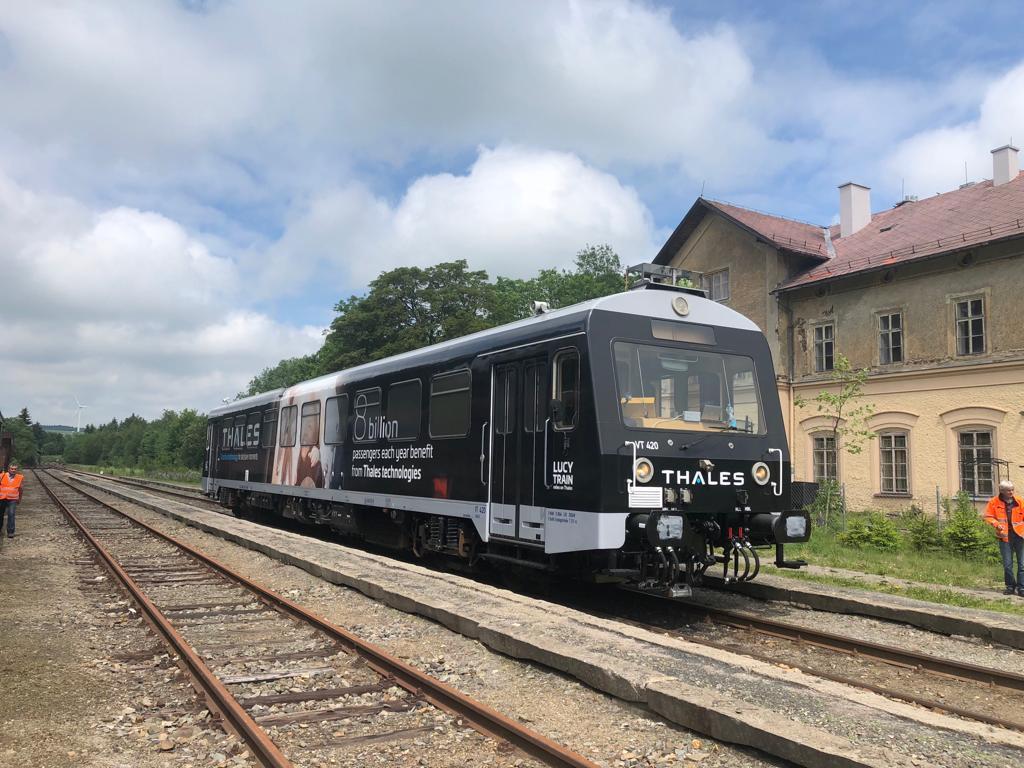Project description:
The stationary charging system is to be used for the selective energy supply of battery-operated trains, which are used on non-electrified railroad lines. These rapid charging stations will be positioned at strategically important points along a railroad line in the station area to ensure the necessary line coverage with the limited battery capacity of the trains. The power supply is realized by a 20 to 30 m long catenary power rail constructed for this purpose, the return current is conducted via the rail. The supply voltage selected is the 15 kV that is customary in Germany. Since a pantograph may carry a maximum of 80 A when stationary, the maximum power per pantograph is limited to 1.2 MVA. These technical parameters are suitable because all battery-powered railcars are equipped with pantographs as standard. This means that no technical changes to the trains are necessary and docking is quick and easy. In addition, much more power can be transmitted via overhead lines than, for example, via a plug connection. Battery-powered railcars can handle a frequency of 16.7 as well as 50 Hz, the stationary charging system is to use 50 Hz. The charging process is only carried out when the train is stationary.
project information:
Status: Initiation, application
Partner:
- Smart Rail Connectivity-Campus e. V. Annaberg-Buchholz
- Technische Universität Dresden mit der Professur Elektrische Bahnen
- F&S converter GmbH
- DB Energie
- Rail Power Systems GmbH
- DB RegioNetz Verkehrs GmbH
- DB RegioNetz Infrastruktur GmbH Erzgebirgsbahn
Project description:
With the sustainable electromobility concept for Annaberg-Buchholz and its surrounding area, the city is becoming a pioneer and multiplier in the introduction and dissemination of electromobility in suburban and rural areas. The geographical and infrastructural conditions as well as the population structure of Annaberg-Buchholz and its surrounding area form a contrast to many German (major) cities, which already have their own electromobility concepts. The study thus provides an excellent platform for the formation of an electromobility concept for coping with the special demands on infrastructure outside of highly urbanized areas.
project information:
Status: in process
Duration: 10/2019-12/2020
